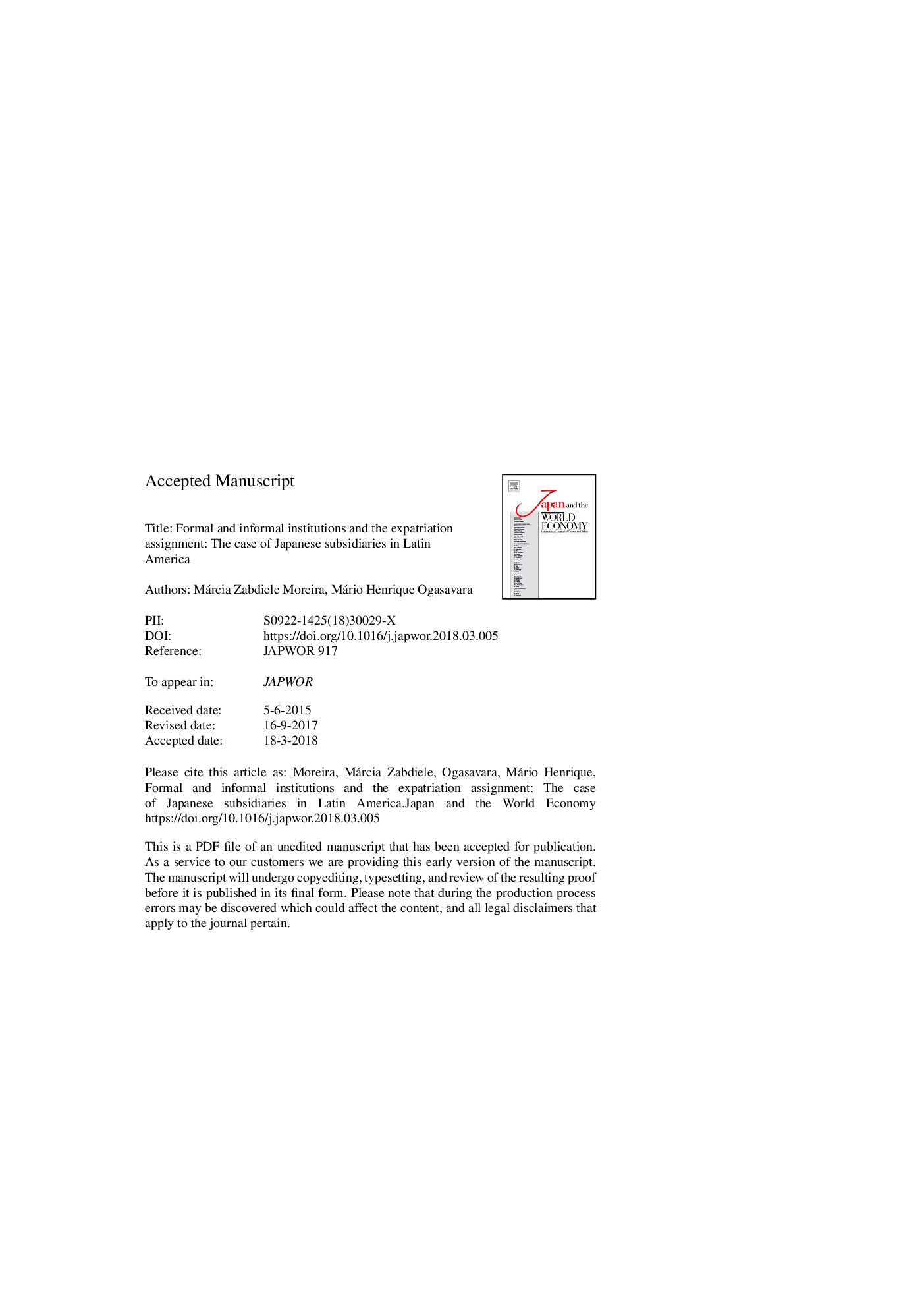| Article ID | Journal | Published Year | Pages | File Type |
|---|---|---|---|---|
| 8948006 | Japan and the World Economy | 2018 | 30 Pages |
Abstract
Firm internationalization processes involve not only their purposes, host country selection, entry mode strategy, and entry timing, but also the expatriation. Countries differ in their institutional aspects and need to be considered at the forefront of expatriation decisions, particularly in emerging markets. However, the relationship between institutional aspects and expatriate assignments is a relatively unexplored topic in the literature on international business. In response, we investigated the impact of formal and informal institutional aspects on expatriate assignments of foreign subsidiaries in emerging markets. To test our hypotheses, we formed a sample of 147 Japanese subsidiaries operating in Latin America, which we analyzed longitudinally from 2007 to 2012 for a total of 882 observations. Regression analyses of panel data showed that when the formal institutional environment is strong, there is an increase of assignment of expatriates to assist the management and control of the subsidiary. While when the informal institution aspects are high, it tends to decrease the expatriation assignment. Moreover, the effect is contingent upon the firm size and the general management of the subsidiary. In sum, different institutional conditions need to be considered in international assignments.
Related Topics
Social Sciences and Humanities
Economics, Econometrics and Finance
Economics and Econometrics
Authors
Márcia Zabdiele Moreira, Mário Henrique Ogasavara,
